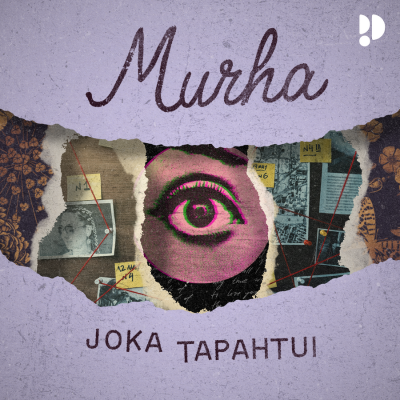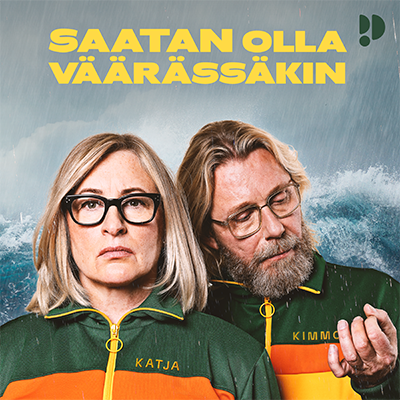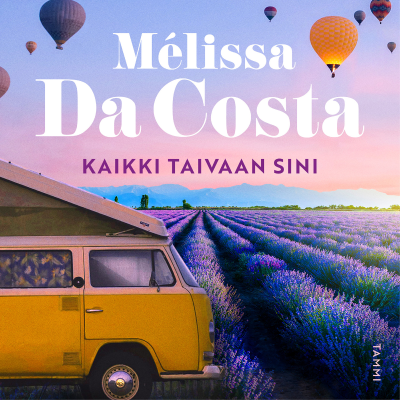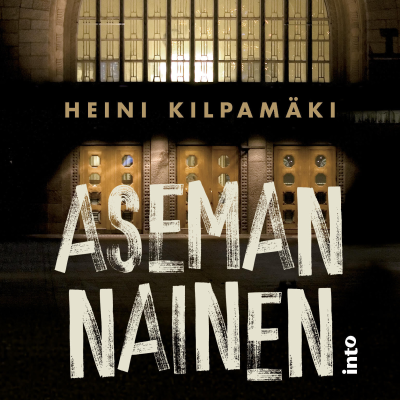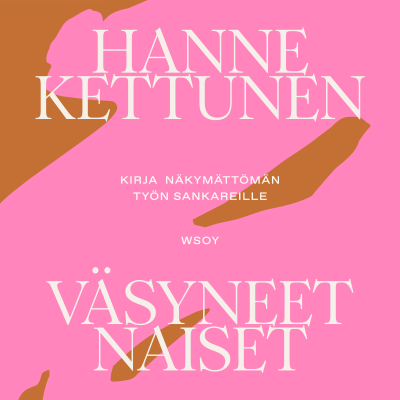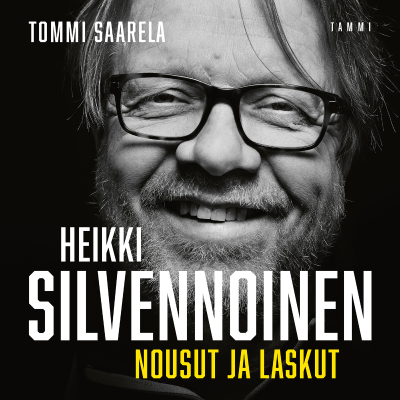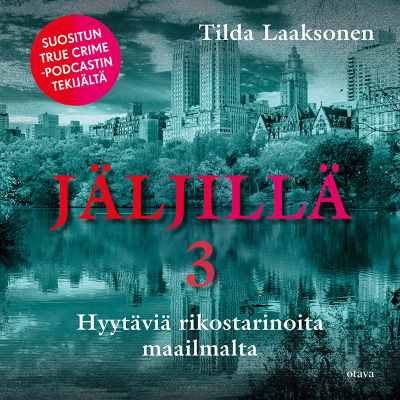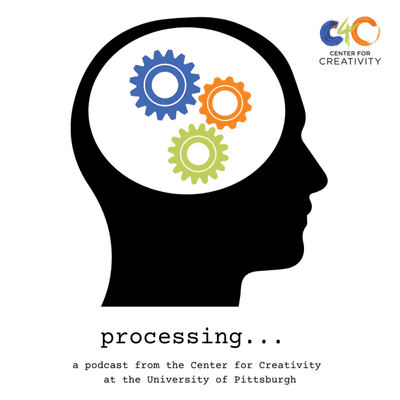
Processing... The Center for Creativity's Podcast
Podcast by Center for Creativity
Processing... is a podcast produced by the University of Pittsburgh's Center for Creativity that questions, explodes, subverts, and in some cases confirms what you think you already know about creativity.This season, we explore creativity in the context of COVID and social transformation. Most of us react to feelings of anger, fear, confusion, and sadness by retreating. We prefer consumption to creation: rereading favorite books, or binging a whole season of television in an afternoon.But creativity calls us to take risks, to dare failure, to face the immense and potentially overwhelming possibilities of a blank page or canvas or computer screen. How do creative makers work through periods of intense political and personal uncertainty? Can outrage and anxiety power creativity, or do they work against it? How can we learn to practice creativity in times that too often seem to reflect back to us the most fearful versions of our neighbors and ourselves?In this season of Processing... we engage with these questions by talking with five Pitt creators who persist.Season Two features Hannah Eko (MFA in writing graduate), Craig Hayes (undergraduate student), Oronde Sharif (Department of Africana Studies faculty), Ivette Spradlin (Studio Arts faculty), and Tahirah Walker (former staff, Center for Teaching and Learning). Hosted by Shannon Fink (Center for Creativity Operations Manager).
Aloita 7 vrk maksuton tilaus
Kokeilun jälkeen 7,99 € / kuukausi.Peru milloin tahansa.
Kaikki jaksot
13 jaksotCommunication technology is advancing faster than ever in our digital world, so why is the Pitt's Center for Creativity and University Library System so excited about the arrival of a printing press from the 1960s? In this episode, we invite a community of printmakers, newspaper editors, and researchers to learn about the ways print has given those who have been systematically marginalized the power to center their own voices and empower each other. Thanks again to our guests, Justin Jones, Gina Watkins, Megan Massenelli, Rob Taylor, Haylee Ebersole, and Kyrie Bushaw. Processing... is a production of the Center for Creativity at the University of Pittsburgh. Many thanks also this season to our partners at the University Library System as well as Archives & Special Collections. More information about the new Text & conText Lab can be found at creative.pitt.edu/text-context-lab [https://www.creative.pitt.edu/text-context-lab] In this episode * 02:54 How historic publications can fit different needs * 10:02 Print as a revolutionary experience * 13:27 Pitt student activism against anti-LGBT+ bigotry * 17:04 How the pandemic has changed print media External Links: * The story of Absalom Jones and Richard Allen, two former enslaved men who fought back against scapegoating during an outbreak of yellow fever in 1793 Philadelphia (as well as some other amazing stories of Black writers and the letterpress) https://ilovetypography.medium.com/black-print-early-african-american-print-culture-b4a106dea9db [https://ilovetypography.medium.com/black-print-early-african-american-print-culture-b4a106dea9db] * The New Pittsburgh Courier’s centering on African American Pittsburgh https://newpittsburghcourier.com/ [https://newpittsburghcourier.com/] * Meshwork Press’ Youth Programming https://meshworkpress.com/pages/youth-programming [https://meshworkpress.com/pages/youth-programming] * Blackline Magazine’s new fully digital space https://blackline-magazine.squarespace.com/ [https://blackline-magazine.squarespace.com/] * ULS Archives and Special Collections: https://www.library.pitt.edu/archives-special-collections [https://www.library.pitt.edu/archives-special-collections] * Music in this episode by Blue Dot Sessions: sessions.blue [https://www.sessions.blue/]
The print press paved the way for the mass production of information, and with quicker modes of distribution came the power to persuade the masses. "Propaganda" as a term came into use in the 1620s, and we can see examples of various types popping up in the 1800s around the world, but it wasn’t until the start of World War I that we see the use of print presses as tools to spread it, and propaganda and the press have had an association ever since. But do we really understand propaganda and the power it has over us? Can you recognize propaganda? Would you want to make your own propaganda to influence the masses? Thanks to our guests: Dr. Andrew Lotz, Clare Withers, and David Grinnell. Find out more [http://library.pitt.edu/archives-special-collections%20] about Pitt’s Archives and Special Collections. Processing... is a production of the Center for Creativity at the University of Pittsburgh. Many thanks also to our partners at the University Library System as well as Archives & Special Collections. More information about the Text & conText Lab: creative.pitt.edu/text-context-lab [https://www.creative.pitt.edu/text-context-lab] In this episode: * 1:56 Joe Magarac: folklore or fakelore? * 5:18 Pa Pitt, a figure used for redevelopment propaganda * 6:50 Framing why and when propaganda happens * 10:15 Expanding our understanding of what propaganda is * 12:39 Sometimes propaganda is more subtle than you realize * 14:10 Can you create propaganda without power? * 19:37 Historic propaganda in Archives and Special Collections and importance of modes of production External links: * Want to learn more about Joe Magarac and Pa Pitt? Follow this link to Ask an Archivist [https://www.library.pitt.edu/ask-archivist]. * Check out Pitt's Left Ephemera Collection [https://digital.library.pitt.edu/islandora/object/pitt%3Acollection.107] and Archives of Industrial Society [https://digital.library.pitt.edu/islandora/object/pitt%3AUS-PPiU-aisphotos/viewer] * Check the small presses in the Underground Press LibGuide [https://pitt.libguides.com/undergroundpress] * If you want to see some examples of immersive activities that could seed conspiracy and propaganda, check out info about: Puzzlehunts [https://en.wikipedia.org/wiki/Puzzle_hunt], read more about immersive theater projects that have happened in Pittsburgh here [https://www.wesa.fm/arts-sports-culture/2019-09-19/immersive-theater-work-explores-the-pleasures-and-pitfalls-of-digital-living], or check out Geocaching [https://www.geocaching.com/play], a favorite immersive game that may be conspiracy worthy. Music in this episode * Blue Dot Sessions: sessions.blue [https://www.sessions.blue/%22%20/t%20%22_blank]
As the printing press spread across the world, standardized sets of cast metal letters began appearing as well, bearing the names of their designers: Bodoni, Didot, Caslon, and others. Today there seems to be a font for every occasion, mood, and usage. How do we interpret the meanings behind the typefaces? In this episode, we explore how printing has changed our alphabets and how type design can amplify a message. Thanks to our guests: Clare Withers, Anais Grateau, and Jeanann Haas. Find out more [http://library.pitt.edu/archives-special-collections ] about Pitt’s Archives and Special Collections. Processing... is a production of the Center for Creativity at the University of Pittsburgh. Many thanks also to our partners at the University Library System as well as Archives & Special Collections. More information about the new Text & conText Lab can be found at creative.pitt.edu/text-context-lab [https://www.creative.pitt.edu/text-context-lab] In this episode: * 2:40 The Roman alphabet has not always had 26 characters * 3:16 A special chapbook from Pitt's Children’s Literature collection * 6:53 Even cheap books were printed on quality paper * 9:12 The alphabet in 1790, including the archaic “long s" * 12:15 Value of chapbooks then and now * 16:23 Voicemails from Pittsburgh: what is your favorite font? * 23:14 Introduction to Neutraface, the “gentrification font" * 24:07 What fonts do we see around Pittsburgh? * 27:14 Whose voices are heard through typography? External links: * Check out Pitt's Nesbitt Collection [https://pitt.libguides.com/Nesbitt] of children’s literature and History of Books and Printing [https://pitt.libguides.com/historybooksprinting] collections! * Want to print your own copy of the chapbook we discussed in this episode? Follow this link to Ask an Archivist [https://www.library.pitt.edu/ask-archivist]. * Many more chapbooks [https://pitt.libguides.com/nesbittchapbooks] to discover in the Elizabeth Nesbitt collection. * The article from Vice that inspired this episode: “A Deep Dive Into the ‘Gentrification Font’” [https://www.vice.com/en/article/ep499w/gentrification-font-meme-neutraface] * More typeface history [https://mymodernmet.com/influential-typefaces/] and a chart that shows the evolution of the Roman/Latin alphabet [https://mymodernmet.com/history-of-the-alphabet-usefulcharts/]. * An investigation into Gutenberg’s first typeface [https://www.fontfabric.com/blog/gutenberg-first-typeface-original-bible-typography-used/]. * Two articles on Bi Sheng [https://www.ancientpages.com/2014/12/30/chinese-invention-worlds-first-known-movable-type-printing/] and the world’s first movable type. This one [https://medium.com/@RossAlTejada/movable-type-the-very-first-printer-and-a-brief-look-at-its-history-4228bde57e9a] includes a video of the printing process. * A short video interview with type designer Ed Benguiat [https://www.youtube.com/watch?v=KHjdoSP-jVc] Music in this episode * Blue Dot Sessions: sessions.blue [https://www.sessions.blue/] * Chris Zabriskie: chriszabriskie.com [https://www.chriszabriskie.com/]“Undercover Vampire Policeman” and “Land on the Golden Gate” by Chris Zabriskie are licensed under a Creative Commons Attribution 4.0 license [https://creativecommons.org/licenses/by/4.0/ ].
Communication technology is advancing faster than ever in our digital world, so why is the Pitt's Center for Creativity and University Library System so excited about the arrival of a printing press from the 1960s? In this episode, we again invite our friends in the University of Pittsburgh Library System’s Archives and Special Collections to learn about the surprisingly contentious history of paper and how it became a worldwide phenomenon. Thanks again to our guests, Jeanann Haas and Anaïs Grateau. Processing... is a production of the Center for Creativity at the University of Pittsburgh. Many thanks also this season to our partners at the University Library System as well as Archives & Special Collections. More information about the new Text & conText Lab can be found at creative.pitt.edu/text-context-lab [https://www.creative.pitt.edu/text-context-lab] In this episode * 02:15 Paper and its competition * 04:40 Kidnapping and anti-paper propaganda (no kidding!) * 10:19 Acids and paper don’t mix * 14:40 How we save our favorite books from falling apart External Links: * A (very) in depth explanation of the processes for creating papyrus, parchment and vellum, and paper (warning: description of parchment making process can be considered graphic) https://www.adelaide.edu.au/library/special/exhibitions/cover-to-cover/papyrus/ [https://www.adelaide.edu.au/library/special/exhibitions/cover-to-cover/papyrus/] * A dissertation diving into the story of the kidnapped papermakers of Uzbek and variations on how the story is told https://www.proquest.com/docview/2077110914?pq-origsite=primo [https://www.proquest.com/docview/2077110914?pq-origsite=primo] * ULS Archives and Special Collections: https://www.library.pitt.edu/archives-special-collections [https://www.library.pitt.edu/archives-special-collections] * Music in this episode by Blue Dot Sessions: sessions.blue [https://www.sessions.blue/]
Communication technology is advancing faster than ever in our digital world, so why is the Pitt's Center for Creativity and University Library System so excited about the arrival of a printing press from the 1960s? In this episode, we talk with our friends in the University of Pittsburgh Library System’s Archives and Special Collections to learn about some of the mysteries of ink and what makes it a fleeting yet exciting material to work with. Thanks to our guests, Jeanann Haas and Anaïs Grateau. Processing... is a production of the Center for Creativity at the University of Pittsburgh. Many thanks also this season to our partners at the University Library System as well as Archives & Special Collections. More information about the new Text & conText Lab can be found at creative.pitt.edu/text-context-lab [https://www.creative.pitt.edu/text-context-lab] In this episode * 01:32 What makes something an ink * 07:05 Iron Gall Ink is weird * 10:58 The many enemies of ink * 15:19 Preserving modern inks * 17:21 The future of the medium and its creative uses External Links: * An article from realcolorwheel.com gives some in-depth information about just some of the history of ink: http://www.realcolorwheel.com/ink.htm#:~:text=The%20first%20printing%20inks%20in%20use%20until%201864,can%20still%20be%20added%20to%20printing%20ink.%20Printing [http://www.realcolorwheel.com/ink.htm#:~:text=The%20first%20printing%20inks%20in%20use%20until%201864,can%20still%20be%20added%20to%20printing%20ink.%20Printing]. * Chad Brown’s Ink Workshop: https://www.youtube.com/watch?v=LKkyoOwp6_I [https://www.youtube.com/watch?v=LKkyoOwp6_I]. * Processing… 105 with Ana Rodriguez Castillo: https://soundcloud.com/pittc4c/c4c-processing-season-1-ep-5-ana-rodriguez-castillo [https://soundcloud.com/pittc4c/c4c-processing-season-1-ep-5-ana-rodriguez-castillo]. * ULS Archives and Special Collections: https://www.library.pitt.edu/archives-special-collections [https://www.library.pitt.edu/archives-special-collections] * Audobon’s Birds of America: https://digital.library.pitt.edu/collection/audubons-birds-america [https://digital.library.pitt.edu/collection/audubons-birds-america] * Japanese wood blocks: https://digital.library.pitt.edu/collection/barry-rosensteel-japanese-print-collection [https://digital.library.pitt.edu/collection/barry-rosensteel-japanese-print-collection] * The Leuba Collection: https://digital.library.pitt.edu/collection/walter-martha-leuba-papers [https://digital.library.pitt.edu/collection/walter-martha-leuba-papers] * Music in this episode by Blue Dot Sessions: sessions.blue [https://www.sessions.blue/]
Aloita 7 vrk maksuton tilaus
Kokeilun jälkeen 7,99 € / kuukausi.Peru milloin tahansa.
Podimon podcastit
Mainoksista vapaa
Maksuttomat podcastit




